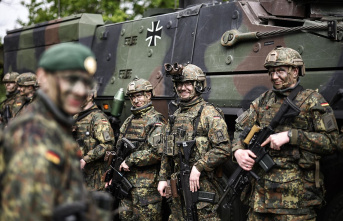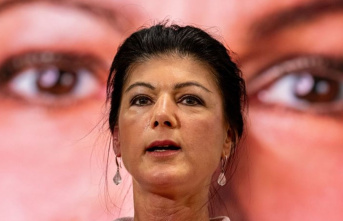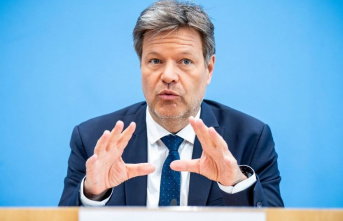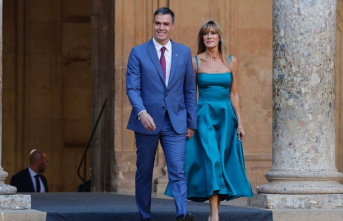The top of the Union parliamentary group also wants to vote against the revised traffic light plans for an electoral law reform in the Bundestag. "In any case, we will reject the proposed law in the German Bundestag," said the Parliamentary Secretary of the CDU/CSU MPs in the Bundestag, Thorsten Frei (CDU), today before meetings of the CDU's top committees in Berlin.
When the law is in place, the Union will "examine on this basis whether we will attempt an abstract norm control," he said, with a view to a possible lawsuit before the Federal Constitutional Court in Karlsruhe.
Frei: "Constitutionally highly problematic"
You will have to look at the traffic light law in detail, said Frei. "Constitutionally, it must be rejected in any case. Constitutionally, we consider the proposal to be highly problematic" because it means that direct mandates that have been won are not allocated. In urban regions and in the east in particular, "where we have very hard-fought constituencies, this will lead to orphaned constituencies and these regions not being directly represented in the German Bundestag."
The deputy head of the CDU and Saxon Prime Minister Michael Kretschmer sharply attacked the traffic light: "This alliance of SPD, Greens and FDP lays the ax on the roots of democracy." The proposal is unfair and undemocratic. Nobody will understand if a candidate wins his constituency and is then prevented from entering the Bundestag. "That will further strengthen disenchantment with politics." With a view to a possible lawsuit in Karlsruhe, he said: "I don't understand why the comments are all so reserved." He hopes that there will be lawsuits "so that the judges can determine whether everything is compatible with law and order".
CDU treasurer Julia Klöckner said the CDU and CSU would now discuss whether to sue in Karlsruhe. It is important that the will of the electorate is reflected in Parliament.
It was announced yesterday that the traffic light factions had finally reached an agreement on an electoral law reform, which is to be passed by the Bundestag by the end of the week. It provides for a reduction in the Bundestag from 736 to a permanent 630 MPs after the next election in 2025. This means that Parliament will not shrink quite as much as originally planned by the traffic light.
Criticism also from the left
Left parliamentary group manager Jan Korte accuses the SPD, Greens and FDP of "shabby" action against political opponents. "This proposal is aimed solely against the left-wing opposition, which is being tried to flatten politically with the right to vote."
The left has a problem with one point of the reform plan - which even has an existential meaning for them. The traffic light wants to delete the so-called basic mandate clause, without which the left would not be in the Bundestag today. This clause ensures that parties that receive less than five percent of the second votes can also enter parliament. You have to win three direct mandates via the first votes.
The left managed to do that in 2021 and entered parliament with a total of 39 MPs, although they had only achieved 4.9 percent of the second votes. Group manager Korte now sees the abolition of the clause as a targeted attack on his group. "With the deletion of the democratically sensible basic mandate clause, the traffic light parties of the AfD are fulfilling a great wish" - the ousting of the left from the Bundestag, he told dpa.











